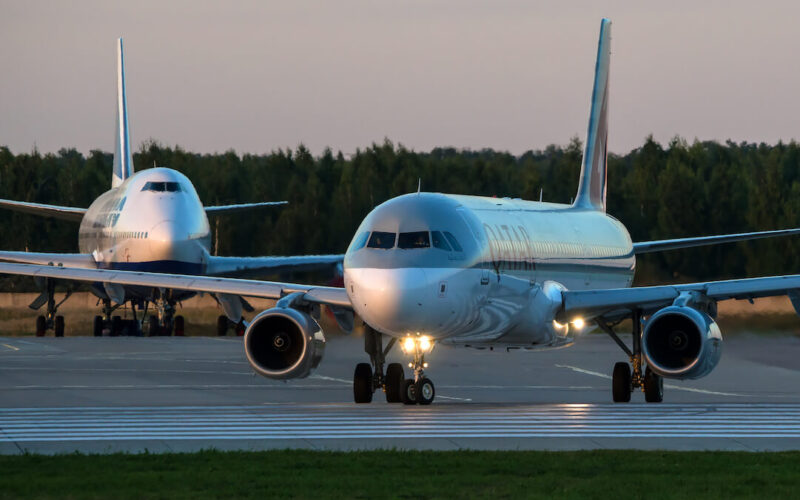A UK court ordered Airbus to delay putting the cancellation of Qatar Airways A321neo jets order in practice, according to a Reuters report on February 19, 2022.
This prevents the European planemaker from making any practical decision, such as allocating valuable early delivery slots to other airlines, regarding the order until further court hearings in April 2022.
Airbus announced terminating Qatar Airways order for 50 Airbus A321neo jets in January 2022. The airline is seeking an injunction reinstating the $ 6 billion worth contract, as its cancellation would “severely affect” it, according to the Bloomberg report which quotes Qatar Airways’ position as outlined in the court documents.
The development comes as Airbus and Qatar Airways are locked in conflict over another model of the planemaker’s jet ‒ the Airbus A350.
The Qatari airline is seeking $618 million in a dispute over the deterioration of the A350 fuselage surface. The air carrier, which has 53 XWBs in its fleet, claims it had to take multiple aircraft off the flight roster and ground due to the issue.
The dispute reached court in December 2021, when Qatar Airways initiated legal proceedings against Airbus, claiming that it had found surface and paint quality defects on 21 A350 aircraft.
“We have sadly failed in all our attempts to reach a constructive solution with Airbus in relation to the accelerated surface degradation condition adversely impacting the Airbus A350 aircraft,” the Doha-based airline said in a statement. “Qatar Airways has therefore been left with no alternative but to seek a rapid resolution of this dispute via the courts.”
In January 2021, a Qatar Airways A350-900, registered as A7-ALL, was ferried to Ireland to be repainted in a special livery to celebrate the 2022 FIFA World Cup, which will be held in Qatar in October 2022. However, irregularities were found on the aircraft surface after it was stripped of its original paint.
At that time, Airbus told AeroTime there was “no safety concern” and that the aircraft would be inspected in Toulouse, France, as a precaution. “This is to do with the surface coating and not with any structural issue with the composites,” the manufacturer wrote in a statement to AeroTime.
In August of the same year, the Qatar Civil Aviation Authority (QCAA) grounded 13 of Qatar Airways Airbus A350 aircraft over similar issues. Currently, the number of parked jets stands at 24, Planespotters.net data shows.
While Airbus largely refrains from commenting on the dispute in public, the manufacturer has previously accused its customer of misrepresenting the problem as a safety issue. Some versions in the media indicate that the airline might have sought the A350 groundings due to its interest to keep the planes idle given the COVID-19 impact on passenger demand. However, the latter claim is not confirmed.
In January 2022, Qatar Airways released video footage showing the defects in questions and claiming they were not superficial. “[…] one of the defects causes the aircraft’s lightning protection system to be exposed and damaged, another defect leaves the underlying composite structure exposed to moisture and ultraviolet light, and other defects include cracking in the composite and damage around a high percentage of rivets on the aircraft fuselage,” the airline wrote in a statement accompanying the video.

